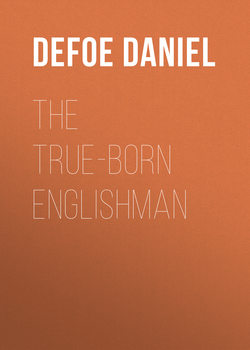Читать книгу The True-Born Englishman - Даниэль Дефо, Данієль Дефо, Defoe Daniel - Страница 14
XIII
ROBINSON EXPLORES THE ISLAND
ОглавлениеAfter Robinson made his hunting bag he was anxious to set off on his journey of exploring the island. So he arose very early next morning. "Before it is hot," thought he, "I will be quite a distance on my journey." He ate a couple of bananas, scooped up a few handfuls of water from the spring, stuck a few ears of corn in his hunting bag, took his stick in his hand and went forth. As he left his cave the thought struck him: "What if I could not find my cave again? How can I manage so that I can come back to it? I will go away in one direction and return the same way; but suppose I were to lose the way?"
Then he noticed his shadow pointing like a great finger from the sea toward the land. He could direct himself by that. He kept his shadow in front of him. He had noticed, too, that the wind always blew north of the point where the sun rose. This helped him. But sometimes the wind died down.
He had to climb over many rocks and pierce many thickets. At each step he saw a rich growth of plants, stems, leaves, flowers, but nothing to eat, no fruits, or nuts. At length he came to a tree as high as a small church steeple.
Then he thought of what his father had once said about the trees in strange countries. "Many are as tall as a church steeple and the nuts are as big as one's head." He looked again. Yes, there they hung among the leaves, concealed high above in the crown! But so high, it was well that Robinson had learned to climb while on board the ship. He quickly laid down his hunting bag and clambered up the smooth stem of the high tree, a palm. He picked off a nut and threw it down and then several more, and climbed down again.
But the nuts were very hard. How should he open them? He had brought along his sharp stone with which he had stripped off the inner bark. With this he forced off the thick outer shell. But now came the hard nut within, and how hard it was! Striking it was of no use.
Then he threw a great stone on the nut. The shell was crushed and a snow-white kernel lay before him. It tasted like almond. With astonishment Robinson saw in the middle of the nut a large empty space which must have been filled with fluid as the inside was wet. He wished that he had the juice to drink, for he was very thirsty. With this in view, he examined another and riper nut, and the outside came off more easily. But how could he break it and at the same time save the juice? He studied the hull of the cocoanut on all sides. At the ends were three little hollows. He attempted first to bore in with his fingers, but he could not. "Hold!" he cried. "Maybe I can cut them there with the point of my stone knife." This was done without trouble and out of the hole flowed the sweet, white juice.
Robinson put a couple of nuts in his hunting bag, and also the shells from the broken nuts. "Now," he thought, "I shall no longer have to drink from my hand." With this thought he went on his way.
As Robinson came to a rock in his path, out jumped what Robinson took to be a rabbit. He ran after him to catch him, but the rabbit was much the swifter. So Robinson hastened home, but before he reached it the stars were shining with their lustrous light. Tired Robinson stretched his limbs on his bed of grass and leaves and slept soundly.
